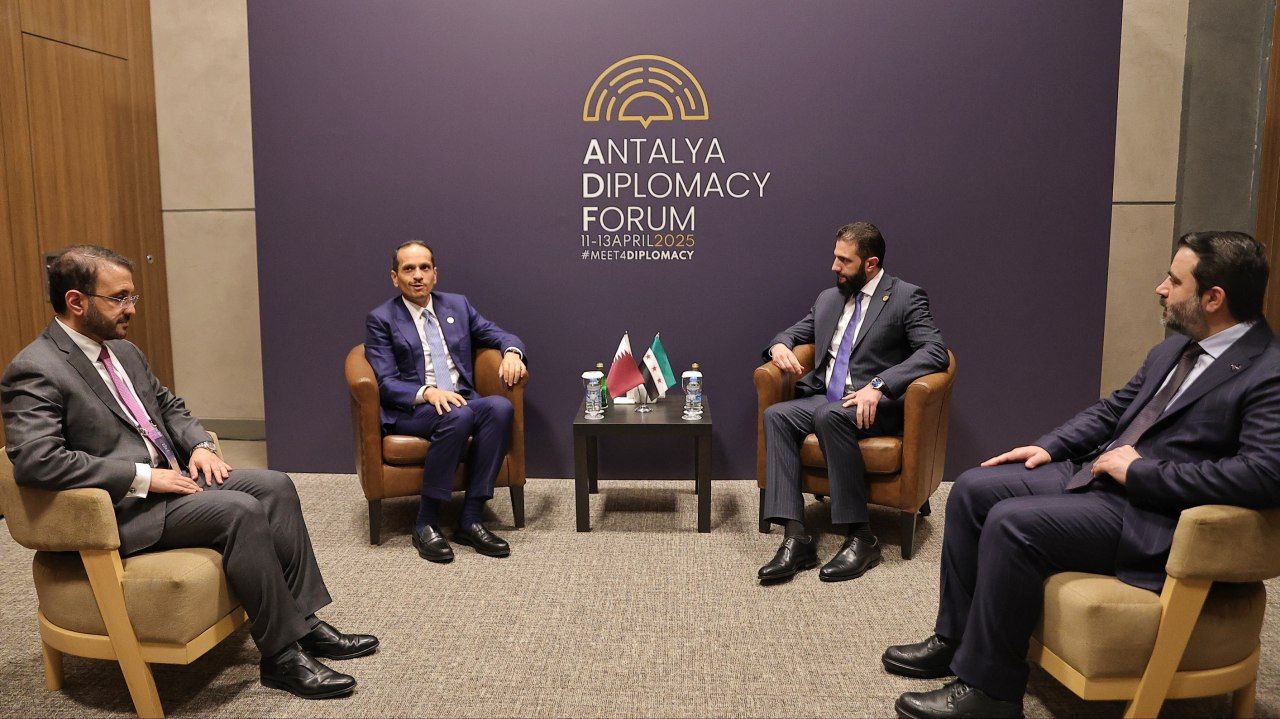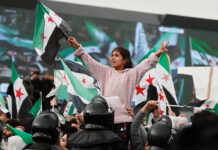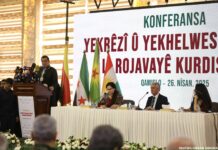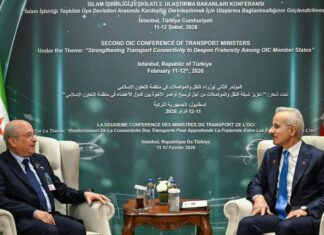
For the first time since the fall of the Assad regime, Syria officially participated in the Antalya Diplomatic Forum, marking a pivotal moment in its return to regional diplomacy. Syrian President Ahmad al-Sharaa led a high-level delegation to the event, held April 11–13 under the theme “Upholding Diplomacy in a Divided World.”
Sharaa called the forum a “valuable opportunity” for the Syrian Presidency that the gathering allowed for “an exchange of views with a number of leaders and officials on current regional and international challenges.” He reiterated Syria’s commitment to sovereignty, dialogue, and peaceful conflict resolution.
Bilateral Engagements & Shifting Alliances
The Syrian delegation was visibly active throughout the three-day event. President Sharaa held meetings with Turkish President Recep Tayyip Erdogan, Qatari Prime Minister Sheikh Muhammad bin Abdulrahman Al Thani, and leaders from Kosovo, Libya, and Azerbaijan. A key outcome was an agreement with Libyan Prime Minister Abdulhamid Dbeibah to reactivate the Libyan-Syrian High Committee, a framework for bilateral cooperation on economic and social issues.
The meeting with Kosovo President Vjosa Osmani stood out as a symbolic departure from Damascus’ past foreign policy. Under the Assad regime, Syria opposed Kosovo’s independence. Sharaa’s outreach signals a willingness to build diplomatic bridges even with previously unrecognized states.
Iraq’s Kurdistan Region President Nechirvan Barzani voiced support for Sharaa’s vision of an inclusive Syria, writing on X, formerly Twitter, that the meeting affirmed a “shared commitment to regional peace and the fight against ISIS.”
Turkey’s Role in the Region
The forum took place amid growing tension between Turkey and Israel over their respective roles in Syria. Erdogan, in his opening remarks, warned of efforts to “drag Syria into a new cycle of instability” and accused Israel of seeking to “sabotage” Syria’s post-Assad transition.
Erdogan praised Syria’s December 8 revolution—marking Assad’s ouster—and emphasized Ankara’s support for Syria’s sovereignty. “We cannot allow the opportunity for lasting stability in Syria to be lost,” Erdogan said. He confirmed ongoing dialogue with global actors, including the US and Russia, to maintain Syria’s territorial integrity.
Israeli officials have expressed concern over Turkey’s increasing footprint in Syria. Israeli Prime Minister Benjamin Netanyahu recently warned that Turkish military activities, including reported interest in bases such as the T-4 airfield, pose “a security threat.”
A Platform for Rebuilding
The Antalya Forum drew more than 4,000 participants from 140 countries, including over 70 ministers and 20 heads of state. A special session focused on Syria’s transition and prospects for stability. Sharaa’s participation, according to conference organizers, added weight to the dialogue.
The Syrian President’s presence—and the warm reception by host Turkey—marked not only a diplomatic milestone but also a sign that Damascus is recalibrating its foreign policy. As Erdogan stated, “We do not want blood and tension, but prosperity and stability.” For Syria, Antalya may represent a first step toward that vision.








